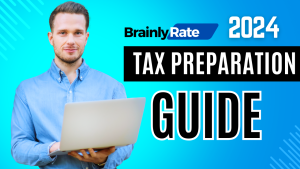In today’s fast-paced world, managing personal finances can be a daunting task. This is where budgeting apps and software come into play, revolutionizing the way individuals handle their money. These tools are designed to simplify the process of tracking income, expenses, and investments, making financial planning more accessible and efficient.
Importance of Budgeting Apps
- Definition: Budgeting apps are digital tools that assist users in managing their personal finances. They provide a platform for tracking spending, setting savings goals, and monitoring financial health.
- Importance: These apps play a crucial role in promoting financial literacy, helping users make informed decisions about their spending and savings. By providing insights into spending habits and cash flow analysis, budgeting apps empower individuals to achieve their financial goals.
Evolution of Budgeting Tools
The evolution of budgeting tools reflects the changing landscape of personal finance management. From traditional paper-based methods to sophisticated digital solutions, these tools have undergone significant transformation:
- Early Stages: Initially, budgeting involved manual tracking of expenses and income, often using paper and pen.
- Software Era: With the advent of computers, budgeting software provided a more organized and efficient way to manage finances.
- Mobile Revolution: The introduction of smartphones led to the development of budgeting apps, offering real-time tracking and personalized financial insights.
Today, budgeting apps are integral in helping individuals maintain their financial health. They offer a range of features from expense categorization to investment tracking, catering to diverse financial needs. For those looking to explore various options, resources like CNBC Select provide valuable insights into different budgeting tools available in the market. Additionally, platforms like Forbes Advisor offer comprehensive reviews and comparisons of top budgeting apps, aiding users in making the right choice for their personal finance needs.
1. Goodbudget
Goodbudget represents a modern approach to the classic envelope budgeting system, tailored for the digital age. It’s designed for individuals and couples who want to manage their finances collaboratively and effectively.
Overview and Key Features
- Digital Envelope System: Goodbudget utilizes a digital version of the envelope budgeting method, allowing users to allocate funds to different spending categories.
- Manual Transaction Input: Unlike many other budgeting apps, Goodbudget requires users to manually input their transactions, fostering a more hands-on approach to budget management.
- Cross-Platform Accessibility: Available on both iOS and Android, as well as a web version, it offers flexibility for users on different devices.
Pros and Cons
- Pros:
- Encourages active engagement with finances.
- Ideal for couples, with features for shared budgeting.
- Helps in setting and achieving specific financial goals.
- Cons:
- Lack of automatic transaction sync may be inconvenient for some users.
- Requires consistent manual input to stay up-to-date.
Ideal User Profile
- Couples looking to manage their finances together.
- Individuals who prefer a hands-on approach to budgeting.
- Users who are comfortable with manual data entry and want to actively engage with their financial habits.
2. You Need a Budget (YNAB)
YNAB stands out in the world of budgeting apps with its unique zero-based budgeting approach, making it a go-to choice for users who are serious about getting their finances on track.
Overview and Key Features
- Zero-Based Budgeting: YNAB operates on the principle that every dollar has a job, whether it’s for bills, savings, or investments.
- Real-Time Tracking: It syncs with bank accounts and credit cards for up-to-date financial information.
- Goal Setting: Users can set specific financial goals and track their progress.
Pros and Cons
- Pros:
- Helps in effectively managing and eliminating debt.
- Encourages proactive financial planning and saving.
- Offers extensive educational resources for better financial literacy.
- Cons:
- Higher cost compared to some other budgeting apps.
- May have a steeper learning curve for new users.
Ideal User Profile
- Individuals focused on debt reduction and serious financial planning.
- Users who appreciate detailed tracking and analysis of their spending.
- Those willing to invest time and resources into mastering the app for long-term financial benefits.
3. PocketGuard
PocketGuard stands as a popular choice among budgeting apps, especially for those who seek a straightforward and intuitive tool to prevent overspending and manage their finances efficiently.
Overview and Key Features
- In My Pocket Feature: PocketGuard’s standout feature calculates how much money you have available for spending after accounting for bills, goals, and savings.
- Automatic Transaction Sync: It links to your bank and credit card accounts for real-time transaction updates.
- Customizable Budgeting: Users can personalize their budgeting categories and set specific financial goals.
Pros and Cons
- Pros:
- Simplifies budgeting with easy-to-understand visuals.
- Helps in identifying and cutting down on unnecessary expenses.
- Offers an autosave feature for effortless saving.
- Cons:
- The premium version, PocketGuard Plus, comes at an additional cost.
- Some users may find the categorization of transactions needs manual adjustment.
Ideal User Profile
- Individuals looking for a simple and automated way to track spending.
- Those who want to identify and cut back on non-essential expenses.
- Users who prefer a budgeting app that offers straightforward financial insights.
4. Empower
Empower is a unique budgeting tool that combines financial tracking with investment management, making it an ideal choice for users who want a comprehensive overview of their financial portfolio.
Overview and Key Features
- Comprehensive Financial Tracking: Empower tracks not just everyday spending but also investments, loans, and retirement accounts.
- Investment Management Services: For a fee, users can access services for managing their investment portfolio.
- Net Worth Tracking: It provides a complete picture of your financial health by tracking both assets and liabilities.
Pros and Cons
- Pros:
- Offers a holistic view of personal finances, including investments.
- Features like retirement planner and fee analyzer add significant value.
- Strong security features ensure data protection.
- Cons:
- The budgeting features may not be as detailed as some specialized budgeting apps.
- Investment management services come with an additional cost.
Ideal User Profile
- Users who want to track both their spending and investment portfolios.
- Individuals interested in detailed insights into their net worth.
- Those looking for an app that offers both budgeting and investment management tools.
Empower is particularly beneficial for users who are not just budgeting but also actively managing investments. For more information on apps that offer such comprehensive financial solutions, visiting platforms like Forbes Advisor can provide valuable insights and guidance.
5. Honeydue
Honeydue is recognized as a leading budgeting app specifically designed for couples, aiming to simplify the way partners manage their joint finances. It’s an excellent tool for those who want to collaborate on their financial journey.
Overview and Key Features
- Joint Financial Management: Honeydue allows couples to view and manage both partners’ bank accounts, credit cards, loans, and investments in one place.
- Customizable Categories: Users can personalize categories for expenses and set limits to control spending.
- Communication Tools: The app includes features for chatting and sending reminders, making financial communication between partners seamless.
Pros and Cons
- Pros:
- Enhances transparency in couples’ finances.
- Offers a platform for joint budgeting and goal setting.
- User-friendly interface with effective communication tools.
- Cons:
- Some users have reported occasional bugs and delays in transaction updates.
- The app’s features might be more than necessary for individuals or those who prefer to manage finances separately.
Ideal User Profile
- Couples looking to manage their finances together in a collaborative manner.
- Partners interested in setting and tracking shared financial goals.
- Users who value transparency and communication in financial planning.
Honeydue is particularly beneficial for couples who are navigating the complexities of joint financial management. For those interested in exploring similar apps or seeking more information on couple-friendly budgeting tools, resources like CNBC Select offer insightful reviews and comparisons. Additionally, platforms like Forbes Advisor provide comprehensive guides to help couples choose the best app suited to their unique financial needs.
FAQs
In the realm of personal finance, numerous questions arise about the tools available for effective budgeting. Here are some frequently asked questions that can help clarify the options:
What software do you use for budgeting?
- Budgeting software refers to applications designed to assist with personal finance management. These tools help in tracking income, expenses, and sometimes investments, providing a comprehensive view of one’s financial situation.
- Examples include Quicken, Mint, and YNAB (You Need A Budget). Each offers unique features, from automatic transaction categorization to goal setting and debt tracking.
What app can I use to make a budget?
- For creating a budget, apps like Mint, PocketGuard, and Goodbudget are popular choices. They offer features like real-time expense tracking, customizable budget categories, and financial goal setting.
- For more detailed comparisons and reviews of budgeting apps, visiting NerdWallet can be incredibly helpful.
What are budgeting apps and how do they work?
- Budgeting apps are mobile applications that help users manage their personal finances. They work by linking to your bank accounts, categorizing your expenses, and helping you track your spending against your budget.
- These apps often provide visual insights into your spending habits, making it easier to identify areas where you can cut back or save more.
What is personal budgeting software?
- Personal budgeting software is a tool designed to help individuals manage their income and expenses. It allows users to create a budget, track spending, and analyze their financial habits.
- This software can range from simple apps for basic expense tracking to more complex systems that include features like investment monitoring and retirement planning.
For those seeking to explore various budgeting tools, Forbes Advisor offers a wealth of information on different personal budgeting software, helping users find the right tool to meet their financial goals.




